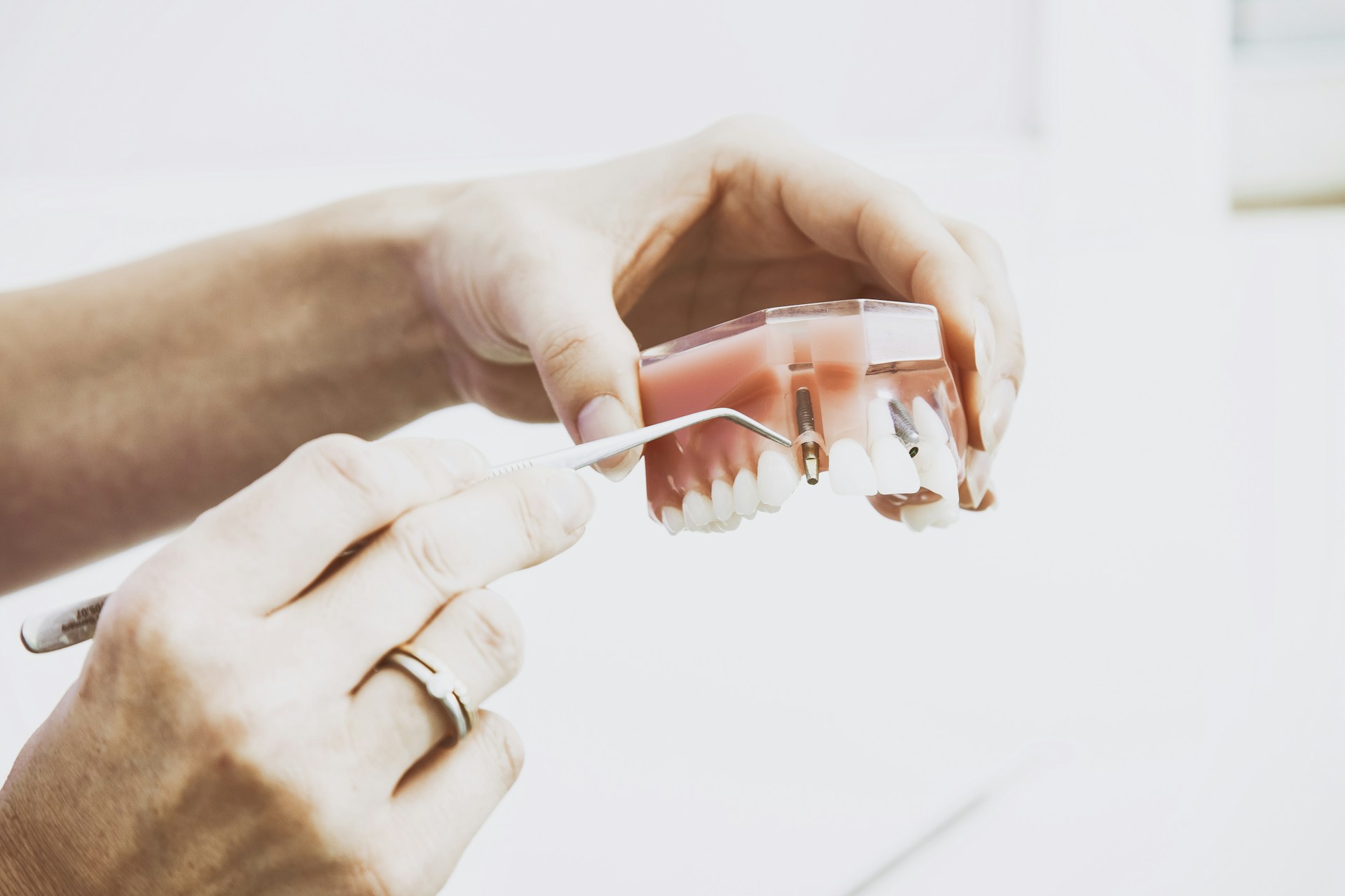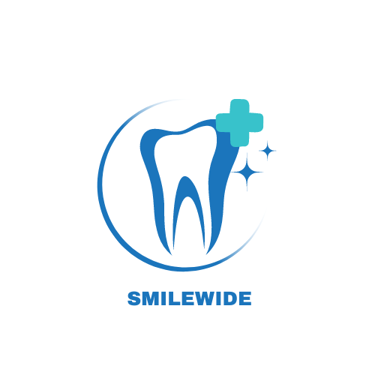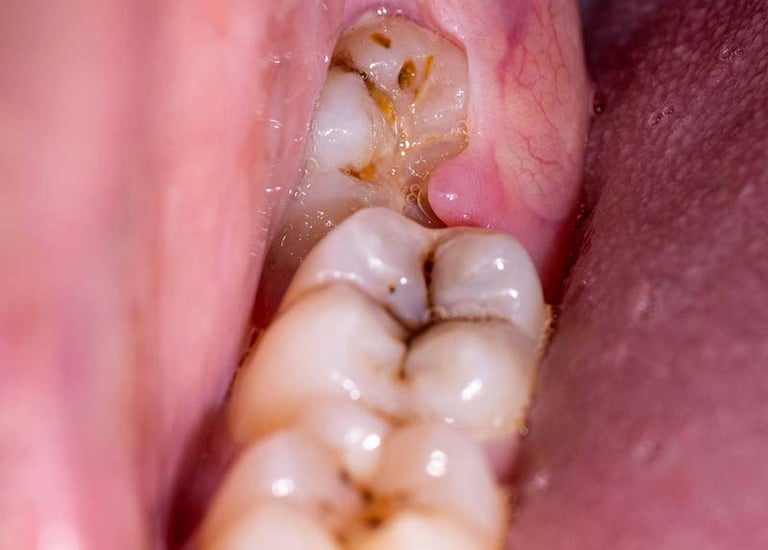SMILE- It costs nothing !!!
Natural Home Remedies for Wisdom Teeth Discomfort
Discover safe and affordable home remedies to alleviate pain and inflammation from erupting wisdom teeth discomfort until you can seek professional dental care.
6/18/20243 min read
Understanding Wisdom Teeth Pain
Wisdom teeth, also known as third molars, are the last set of molars to emerge in the back corners of your mouth.
They typically erupt between the ages of 17 and 25. While some individuals experience no issues with their wisdom teeth, many encounter a range of problems that can cause significant discomfort and necessitate various forms of pain relief.
One primary reason why wisdom teeth cause so much pain is their tendency to become impacted. This occurs when there is insufficient space in the jaw for the teeth to emerge properly, leading them to grow sideways, emerge partially, or remain trapped beneath the gum and bone.
Impacted wisdom teeth can exert pressure on adjacent teeth, causing pain, swelling, and even damage to other teeth.
Misalignment is another common issue associated with wisdom teeth. When these teeth do not align correctly with the rest of the teeth, they can create overcrowding, leading to discomfort and difficulty in maintaining proper oral hygiene.
Misaligned wisdom teeth can cause food and bacteria to become trapped, increasing the risk of cavities and gum disease.
Infection is also a prevalent concern with wisdom teeth. As these molars struggle to emerge, they may create openings where bacteria can infiltrate the gums, leading to painful infections.
Symptoms of such infections include swelling, redness, bad breath, and a foul taste in the mouth. In severe cases, the infection can spread, causing fever and more serious health complications.
Common symptoms of wisdom teeth pain encompass a range of discomforts, including swelling of the gums, difficulty chewing, jaw stiffness, and persistent throbbing or sharp pain.
These symptoms can significantly impact daily activities and overall well-being, highlighting the importance of addressing wisdom teeth issues promptly.
Top Home Remedies for Wisdom Teeth Pain Relief
Wisdom teeth pain can be quite distressing, but several home remedies can provide effective relief. These methods are not only easily accessible but also backed by traditional use and some scientific support.
Saltwater Rinses: One of the simplest and most effective remedies is a saltwater rinse. Mix a teaspoon of salt in a glass of warm water and swish it around your mouth for about 30 seconds before spitting it out.
Saltwater helps reduce inflammation and cleanses the affected area, promoting healing. For best results, repeat this process several times a day.
Cold Compresses: Applying a cold compress to the outside of your cheek can help numb the pain and reduce swelling. Wrap some ice cubes in a cloth and hold it against the sore area for 15-20 minutes. This method can be repeated every few hours as needed.
The cold helps constrict blood vessels, decreasing inflammation and numbing the pain.
Over-the-Counter Pain Relievers: Non-prescription pain relievers like ibuprofen or acetaminophen can effectively manage wisdom teeth pain.
Follow the dosage instructions on the packaging, and be mindful of any potential side effects or interactions with other medications.
Peppermint Tea: Peppermint tea has soothing properties that can help alleviate pain. Brew a cup of peppermint tea and allow it to cool. Use the cooled tea as a mouth rinse or apply a dampened peppermint tea bag directly to the affected area.
The menthol in peppermint provides a cooling effect, reducing discomfort.
While these home remedies can be quite effective, it is essential to use them safely. Avoid applying excessive pressure to the painful area and discontinue use if any remedy exacerbates the pain. If the pain persists or worsens, consult with a dental professional to rule out any serious underlying conditions.
When to Seek Professional Treatment
While home remedies can provide temporary relief for wisdom teeth pain, there are limitations to their effectiveness. It is crucial to recognize the signs that indicate the need for professional dental care. Persistent pain is one of the primary indicators that home remedies might not be sufficient.
If the pain continues despite trying various natural treatments, it is time to consult a dentist.
Another critical sign to watch for is infection. Symptoms such as fever, pus, and swelling around the wisdom teeth area suggest an infection that requires professional attention.
Ignoring these signs can lead to more severe complications, including the spread of infection to other parts of the mouth or even the bloodstream. Additionally, experiencing difficulty in opening the mouth or swallowing should prompt an immediate visit to the dentist.
A dentist may recommend several treatments depending on the severity of the condition. For infections, antibiotics are often prescribed to eliminate the bacterial presence and prevent the infection from spreading.
In cases where there is significant plaque and tartar buildup around the wisdom teeth, a professional cleaning might be necessary to remove these deposits and reduce inflammation.
In more severe situations, such as impacted or partially erupted wisdom teeth, surgical extraction might be the best course of action. This procedure involves the removal of one or more wisdom teeth to alleviate pain and prevent further dental complications.
The dentist will evaluate the condition of the teeth and surrounding tissues and determine the most appropriate treatment plan.
Understanding when to seek professional treatment is essential for maintaining oral health and preventing serious issues. While natural remedies can be effective for minor discomfort, recognizing the limitations and seeking timely professional care can ensure a healthier and pain-free dental experience.

Contact Smiles
drdeepi15@gmail.com
Dr. Deepika B.D.S
© 2025 SmileWide Dental. All Rights Reserved.
Have doubts ..?


